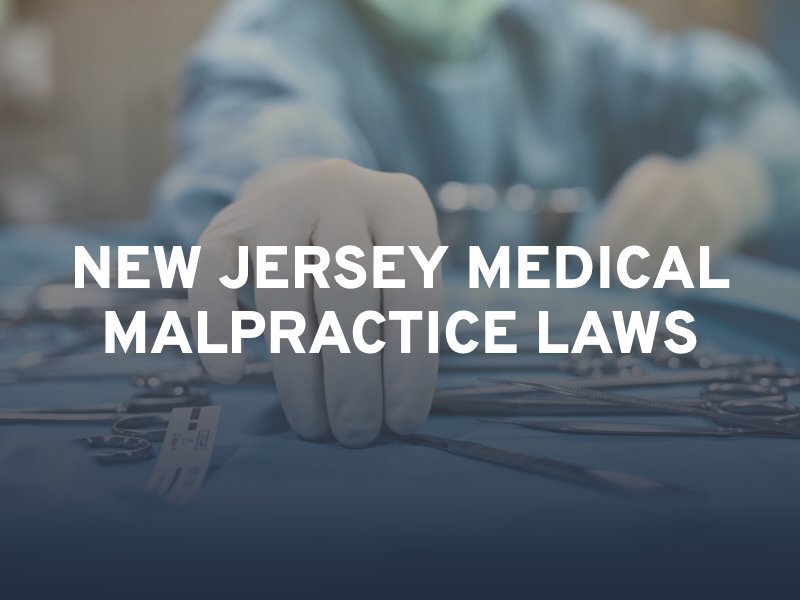When you trust your life into the hands of a medical professional, the last thing you expect is for him or her to do something that compromises your care. Yet thousands of patients suffer serious injuries due to medical malpractice each year. Malpractice is a health care professional’s breach of the accepted duty of care. If you believe you or a loved one is the victim of medical malpractice, learn New Jersey’s medical malpractice laws to successfully navigate a claim. If you have any further questions, reach out to a skilled Monmouth County medical malpractice lawyer at Cerussi & Gunn, P.C.

First, you will need to learn the definition of medical malpractice in New Jersey. Medical malpractice is a tort, or wrongdoing, committed by a health care professional or facility. It can describe any action or omission in the medical industry that goes against the standards of care, resulting in patient injury or death. Medical malpractice claims are made up of four key elements.
Medical malpractice can describe any type of unprofessional conduct, incompetence, impairment or preventable mistake by a health care provider that injures a patient. Common examples include misdiagnoses, medication mistakes, surgical errors, anesthesia errors, birth injuries and lack of proper patient care.
If you encounter medical malpractice in New Jersey, you may be able to file a claim against the at-fault party in pursuit of financial compensation. A compensatory award can allow your family to pay off the expenses related to a physician’s error, including medical bills and lost wages, and move forward with peace of mind. You must file within New Jersey’s statute of limitations, however, to have a valid claim.
The statute of limitations is a law that controls how long a plaintiff has to bring a claim before he or she is barred from recovery. The statute of limitations is different from state to state. In New Jersey, you have no more than two years from the date of the alleged malpractice to file a claim, with rare exceptions. If you do not discover your injury until later, you will have two years from the date of discovery to file. If the victim is a minor, he or she will have two years from his or her 18th birthday instead.
Before the civil courts in New Jersey will listen to your claim, you will need to prove that it has merit. You must file an affidavit of merit signed by an appropriate medical expert. An affidavit of merit is a legal document stating that an expert has reviewed your case and believes you have grounds for a claim due to a provider falling outside of the acceptable standards of practice. You have 60 days from the time the defense attorney responds to your initial claim to file an expert affidavit.
A damage cap is a limit on how much an injured party may receive for his or her injury. Many states, including New Jersey, place damage caps on medical malpractice claims to protect their health care systems from going bankrupt by having to pay out large settlements to patients.
New Jersey’s limit on damages states that no patient can receive more than $350,000 or five times his or her compensatory damage award (whichever is greater) in punitive damages. Note that this cap only applies to punitive damages – awarded to a patient for gross negligence – and not other types of damages.
The best way to navigate a legal claim and protect your rights as an injured patient in New Jersey is by hiring a medical malpractice lawyer to represent you. A medical malpractice attorney understands all of New Jersey’s related laws and can go up against a doctor or hospital on your behalf. Consult with a lawyer about your right to file a lawsuit as soon as possible.